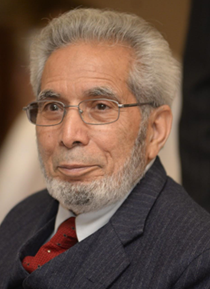Know Your Investor Profile
By Saghir A. Aslam
Rawalpindi, Pakistan

(The following information is provided solely to educate the Muslim community about investing and financial planning. It is hoped that the Ummah will benefit from this effort through greater financial empowerment, enabling the community to live in security and dignity and fulfill their religious and moral obligations towards charitable activities.)
Before developing an investment strategy, answer some fundamental questions that will define your investor profile. These questions include: what are your overall investment objectives? Investors committed to growth are looking for appreciation of capital with little concern for income. Total return investors want a balance of income and capital appreciation. Income investors are looking for interest or dividend income with capital appreciation a secondary concern. Individuals concerned about preservation of capital are most concerned with protecting their principal.
What’s your investment time frame? Short-term investors need their money in a year or two, while intermediate-term investors are investing for at least five years. A long-term investor is investing for at least five years. Typically, stock investments should only be considered for ling-term investors. Because stock returns can be volatile, it is important to invest through different market cycles to reduce the chances that you will receive a lower return than you expected.
What is your risk tolerance? You should accurately gauge your tolerance for risk. If you take on too much risk, you may be tempted to sell an investment after a market downturn. Those uncomfortable losing more than 5% of their principal in a year have a low risk tolerance and should consider short-term cash investments. A person with a moderate tolerance could withstand a loss of 6 % to 15 % and should consider bonds and high-quality stocks. A person with a high-risk tolerance could withstand a loss of 16% t0 25 % and should consider growth and more aggressive stock investments. Keep in mind that these loss ranges are typically for the investment type as a group, but individual investments could sustain much larger losses than a diversified portfolio.
What rate of return do you expect on your investments? Although past performance is not a guarantee of future results, reviewing historical rates of return for various investments will provide a rough estimate of returns you can expect. Keep in mind that returns typically reward you for risks you assume. Thus, more aggressive investments usually have higher return potential.
Are you concerned with minimizing Income Taxes? Investors in higher tax brackets will want to consider investments that help minimize taxes. That might include municipal bonds, investments generating capital gains, and tax-deferred investments, such as 401(K) plans and individual retirement accounts.
How you should allocate your portfolio among various investments will depend on your answers to these questions. It is also important to recognize that your answers to these questions will change over time, which may require revisions top your investment plan.
(Saghir A. Aslam only explains strategies and formulas that he has been using. He is merely providing information, and NO ADVICE is given. Mr Aslam does not endorse or recommend any broker, brokerage firm, or any investment at all, nor does he suggest that anyone will earn a profit when or if they purchase stocks, bonds, or any other investments. All stocks or investment vehicles mentioned are for illustrative purposes only. Mr Aslam is not an attorney, accountant, real estate broker, stockbroker, investment advisor, or certified financial planner. Mr Aslam does not have anything for sale.)

